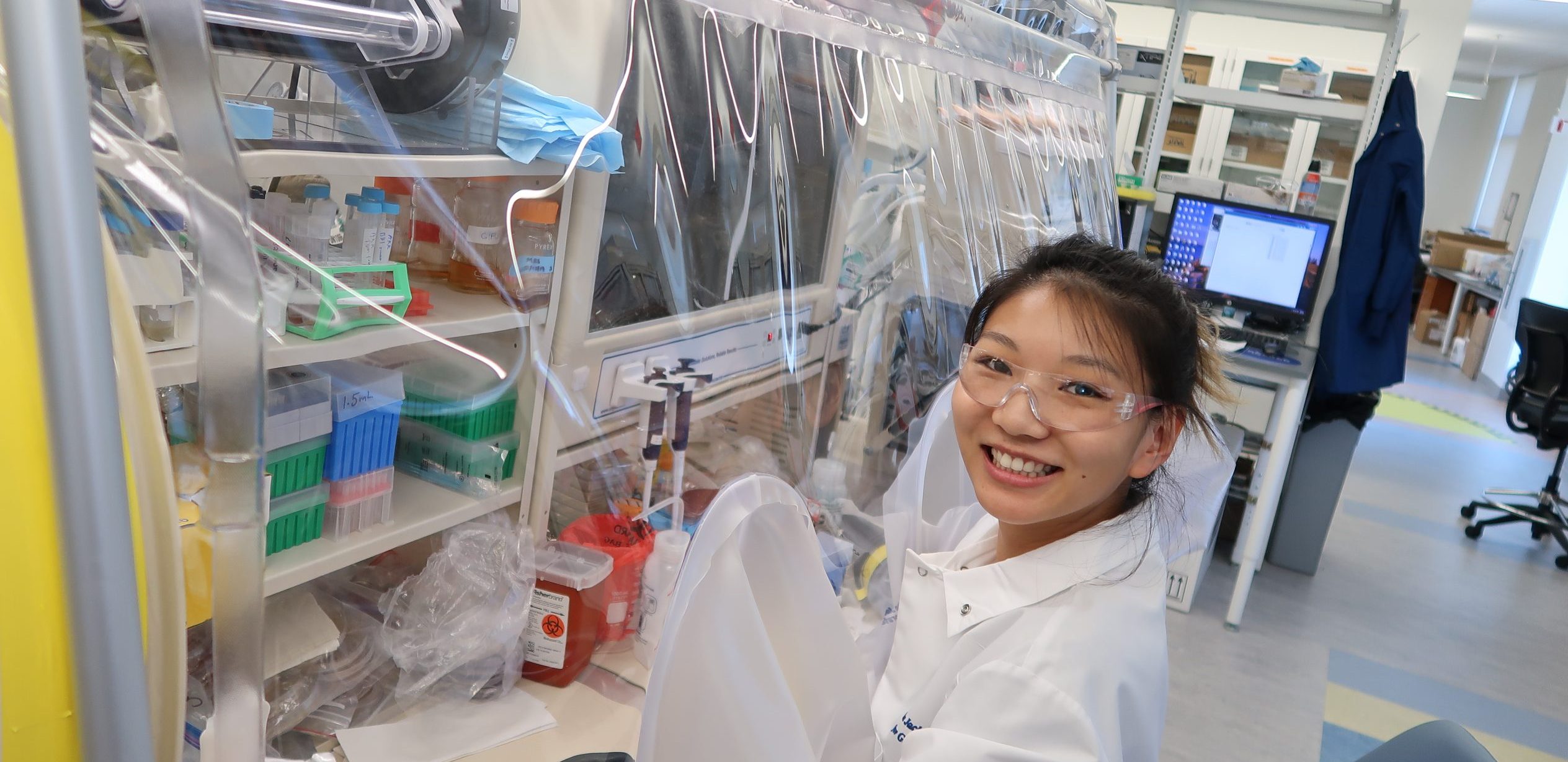
MD-Ph.D. Program
UConn’s MD-Ph.D. Program provides students with an intellectually stimulating and highly integrated educational experience leading to completion of both the MD and Ph.D. degrees. Many of our alumni have been matched to highly competitive residencies and have become successful NIH-funded physician-scientists at leading academic institutions.
Mission
The mission of our MD-Ph.D. Program is to prepare individuals of outstanding potential for productive careers as physician-scientists. The program emphasizes developing the skills necessary to become a highly competent and caring physician and to perform, evaluate, and communicate the results of independent research in the biomedical sciences.
We seek highly qualified students who are passionate about service, have a strong commitment to advancing medical knowledge, and the intellectual and analytical skills necessary to become future leaders in academic medicine and medical research. The Admissions Committee takes a holistic approach, recognizing the value of each applicant’s unique experiences, strengths, and background in shaping the next generation of physician-scientists.
Our program is dedicated to high-quality medical and graduate education tailored to the needs of the individual student. We are a close-knit community of students, faculty, and staff. Collegiality and mentorship are key aspects of the program.
Program Structure
MD-Ph.D. students matriculate for the first 18 months with the regular MD students before they pursue their graduate studies, taking four years to complete their Ph.D. dissertation research and then return for clinical clerkships. During the first two years, in addition to completing the preclinical requirements of the medical school curriculum, students pursue select graduate school coursework and two to three laboratory rotations. Incoming MD-Ph.D. students have the option to complete their first laboratory rotation the summer before matriculation.

There is an emphasis on continuity of clinical education, providing an opportunities to practice clinical skills on patients from the start of medical school and throughout the graduate phase, better-preparing students to excel in clinical rotations. Students remain actively involved in the program during all phases of their training via a weekly biomedical and clinical research communications club, symposiums, leadership opportunities, and other events. During the first year of medical school and during the graduate phase, trainees receive specialized training in conflict management and leadership.
As part of the Clinical Longitudinal Immersion in the Community (CLIC), all UConn Medical Students dedicate a half-day a week to working with a preceptor in a community or specialty clinic for a longitudinal clinical clerkship throughout medical school starting in the first year. During the graduate phase, students continue working under their CLIC preceptor for a half-day a month to maintain clinical skills and make connections between medicine and science. After completing the graduate phase and PhD requirements, students return to medical school for the final two years of clinical training and medical school. During this time, MD-PhD students have the option to tailor their half-day weekly allotted CLIC experience to a specialty of their choice or utilize this time for protected research.
For a full breakdown of program structure, see our page on the M Delta Curriculum for MD-Ph.D. Students.
Medical Education
UConn School of Medicine is one of the nation's leading public medical schools, featuring a modern, case-based learning curriculum, early clinical experience, and state-of-the-art facilities for clinical simulation, virtual and cadaverial anatomy education
M.D./Ph.D. students engage in UConn School of Medicine’s industry-leading M Delta curriculum.
Learn more about UConn School of Medicine’s curriculum.
Graduate Education
During the graduate phase, students pursue intensive thesis research in one of seven areas of concentration (AOC) in biomedical science and complete additional coursework required by their AOC. The Biomedical Science AOCs are:
- Cell Biology
- Genetics & Developmental Biology
- Immunology
- Molecular Biology and Biochemistry
- Neuroscience
- Skeletal Biology and Regeneration
- Systems Biology
The Jackson Laboratory for Genomic Medicine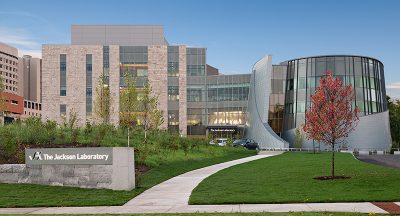
The Jackson Laboratory (JAX) offers collaborative research training opportunities for our students in mammalian genetics and genomic medicine on our UConn Health campus. Our students have the option to complete lab rotations and perform their Ph.D. thesis research with a JAX faculty member at the Jackson Laboratory on our Farmington, CT campus at UConn Health, if the JAX faculty member has an appointment as a faculty member of the UConn Graduate School. Learn more about the cooperative Ph.D. program and JAX-GM.
Facilities
Students
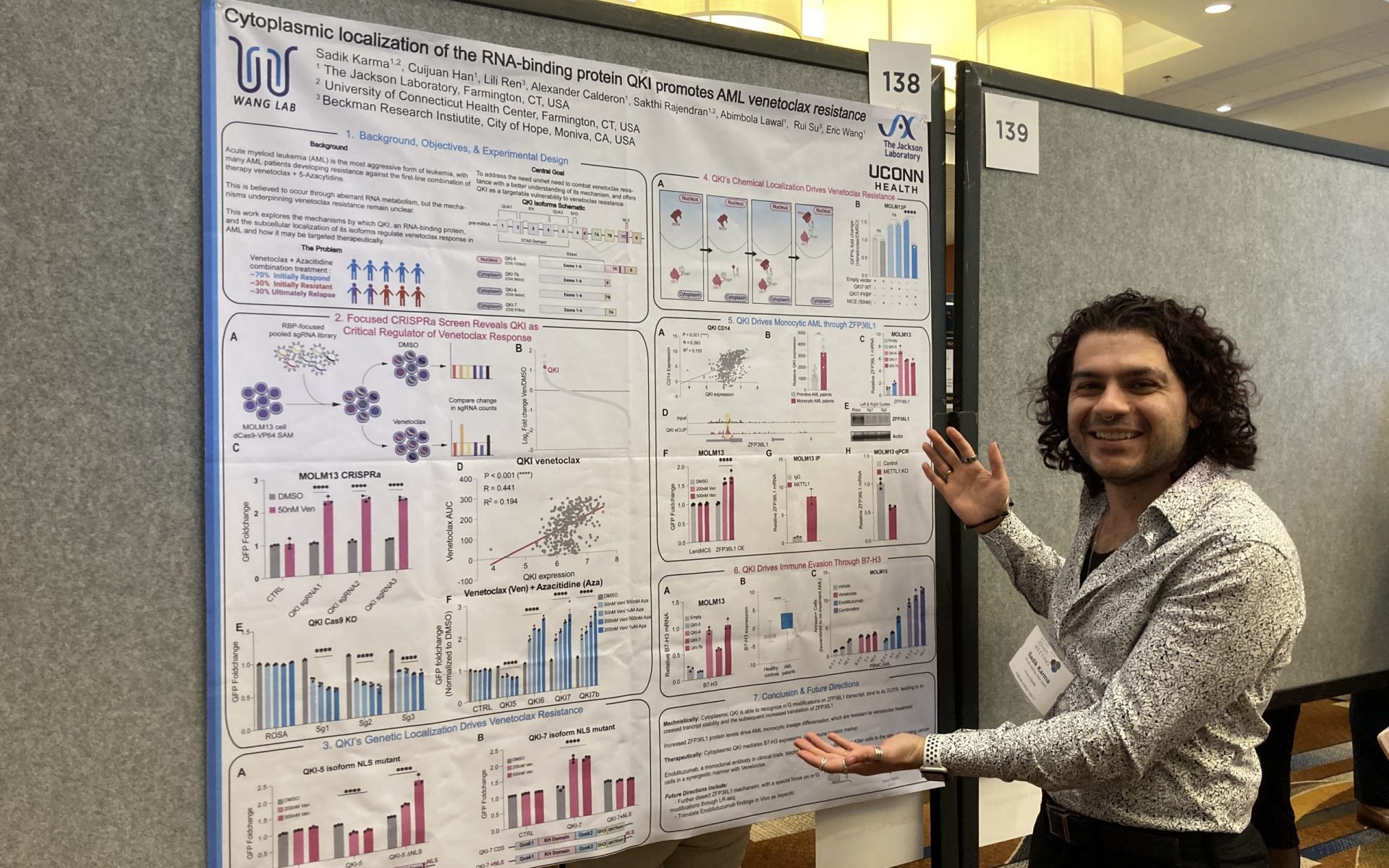 UConn MD/PhD student Sadik Karma presenting his work at the 2025 joint AAP/ASCI/APSA Conference.
UConn MD/PhD student Sadik Karma presenting his work at the 2025 joint AAP/ASCI/APSA Conference.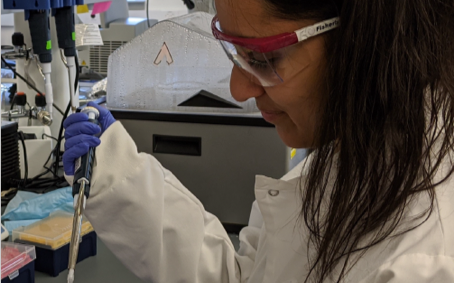 Feria Ladha (MD/PhD G3) conducting her PhD research in cardiology at JAX-GM.
Feria Ladha (MD/PhD G3) conducting her PhD research in cardiology at JAX-GM.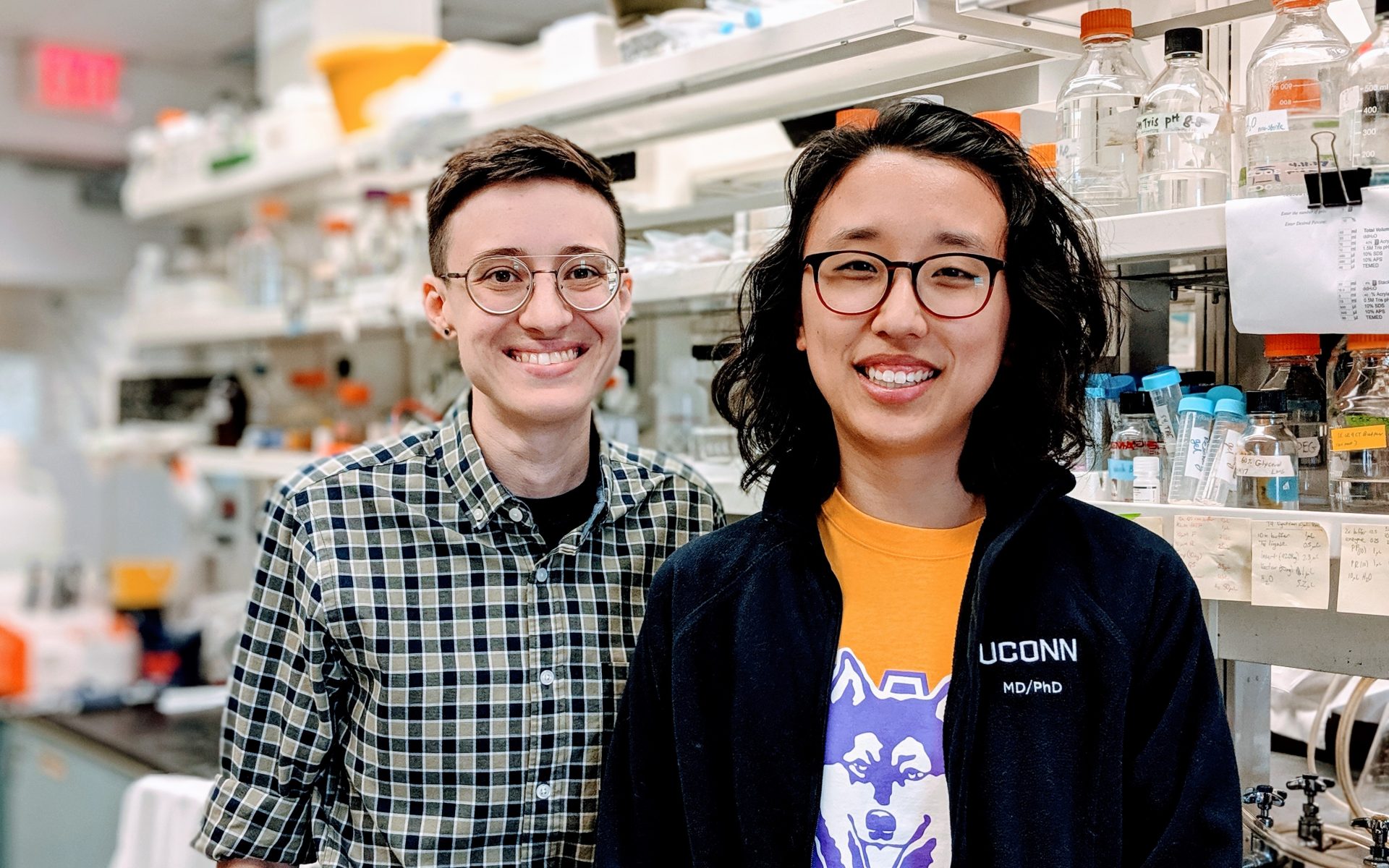 6th year MD/PhD Candidates Katie Discipio (Left) and Grace Kwon (Right) in their natural habitat.
6th year MD/PhD Candidates Katie Discipio (Left) and Grace Kwon (Right) in their natural habitat.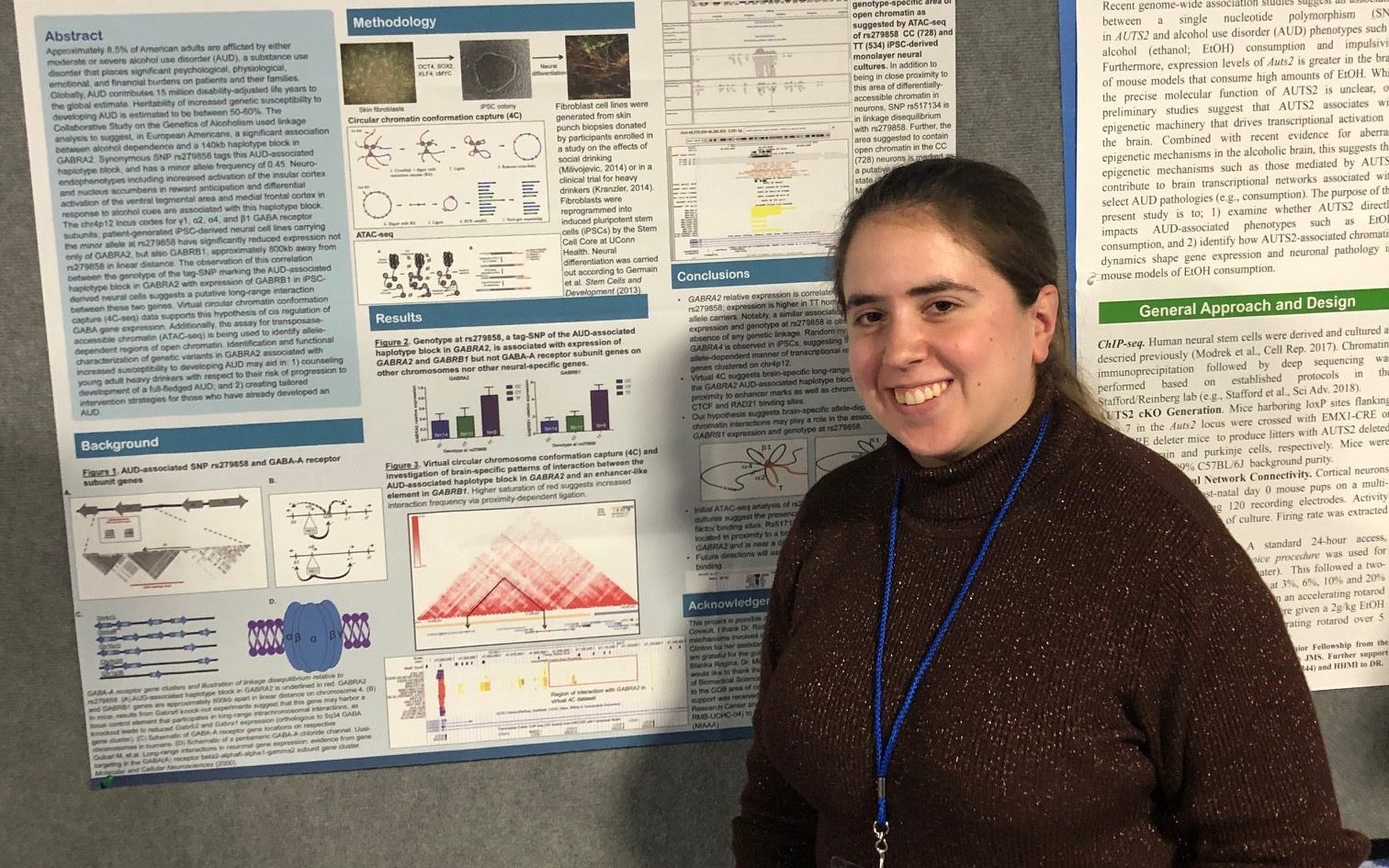 7th Year MD/PhD Student Alexandra Goetjen, M.S. presenting her ongoing thesis work in the lab of Jonathan Covault, MD PhD
7th Year MD/PhD Student Alexandra Goetjen, M.S. presenting her ongoing thesis work in the lab of Jonathan Covault, MD PhD Albert Yu Kayaking at Keystone
Albert Yu Kayaking at Keystone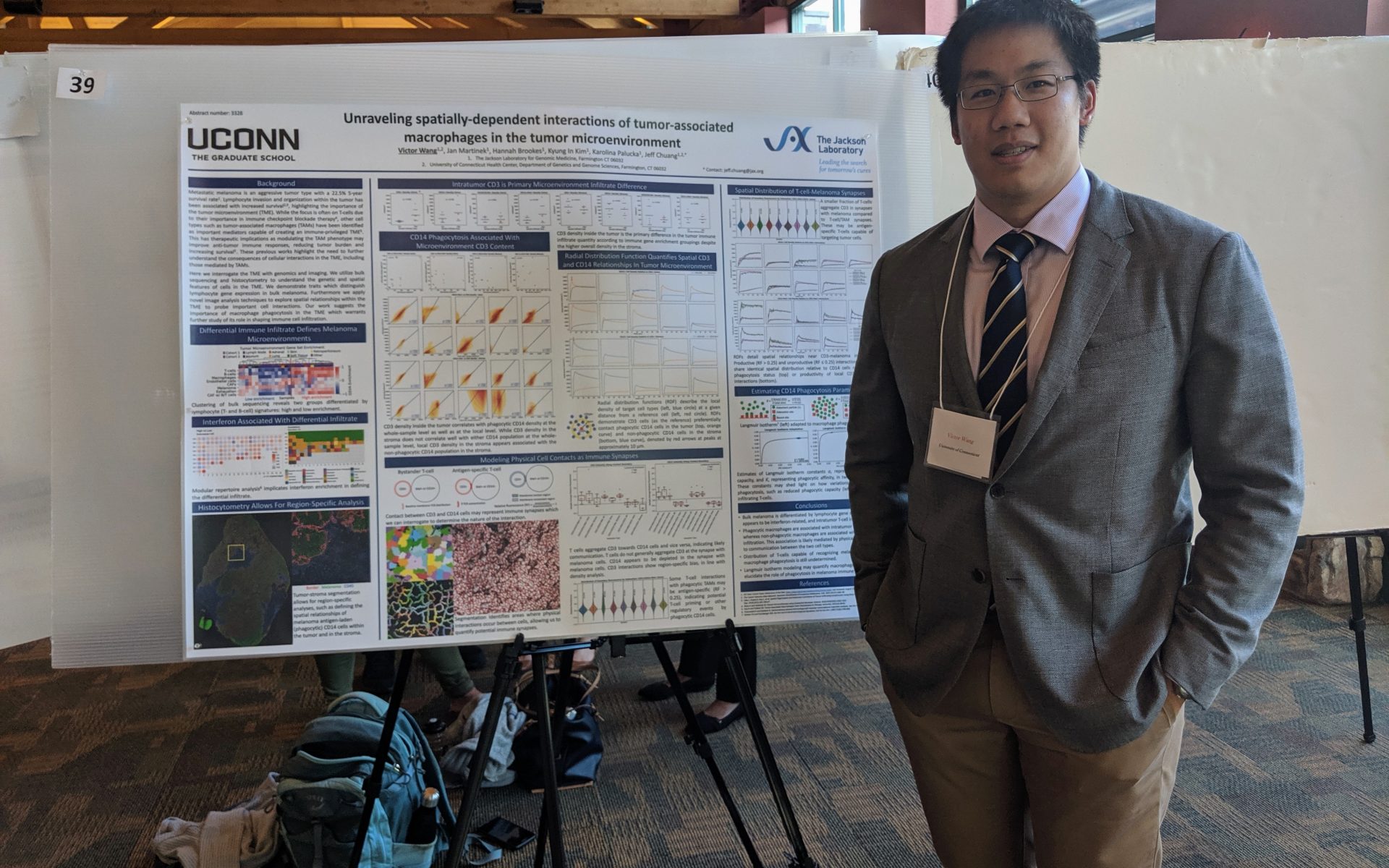 5th year MD/PhD Candidate Victor Wang presenting his research.
5th year MD/PhD Candidate Victor Wang presenting his research.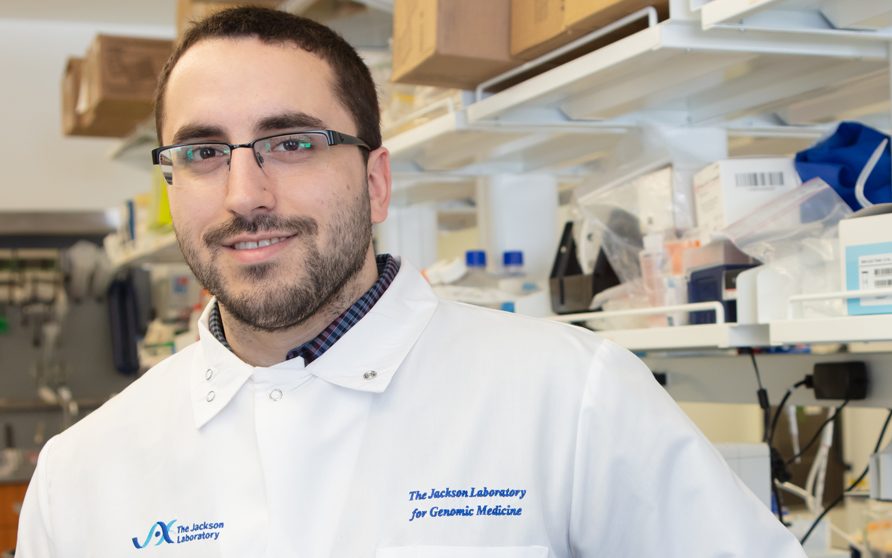 MD/PhD Candidate Anthony "Tony" Pettinato in the Hinson lab at Jax-GM.
MD/PhD Candidate Anthony "Tony" Pettinato in the Hinson lab at Jax-GM.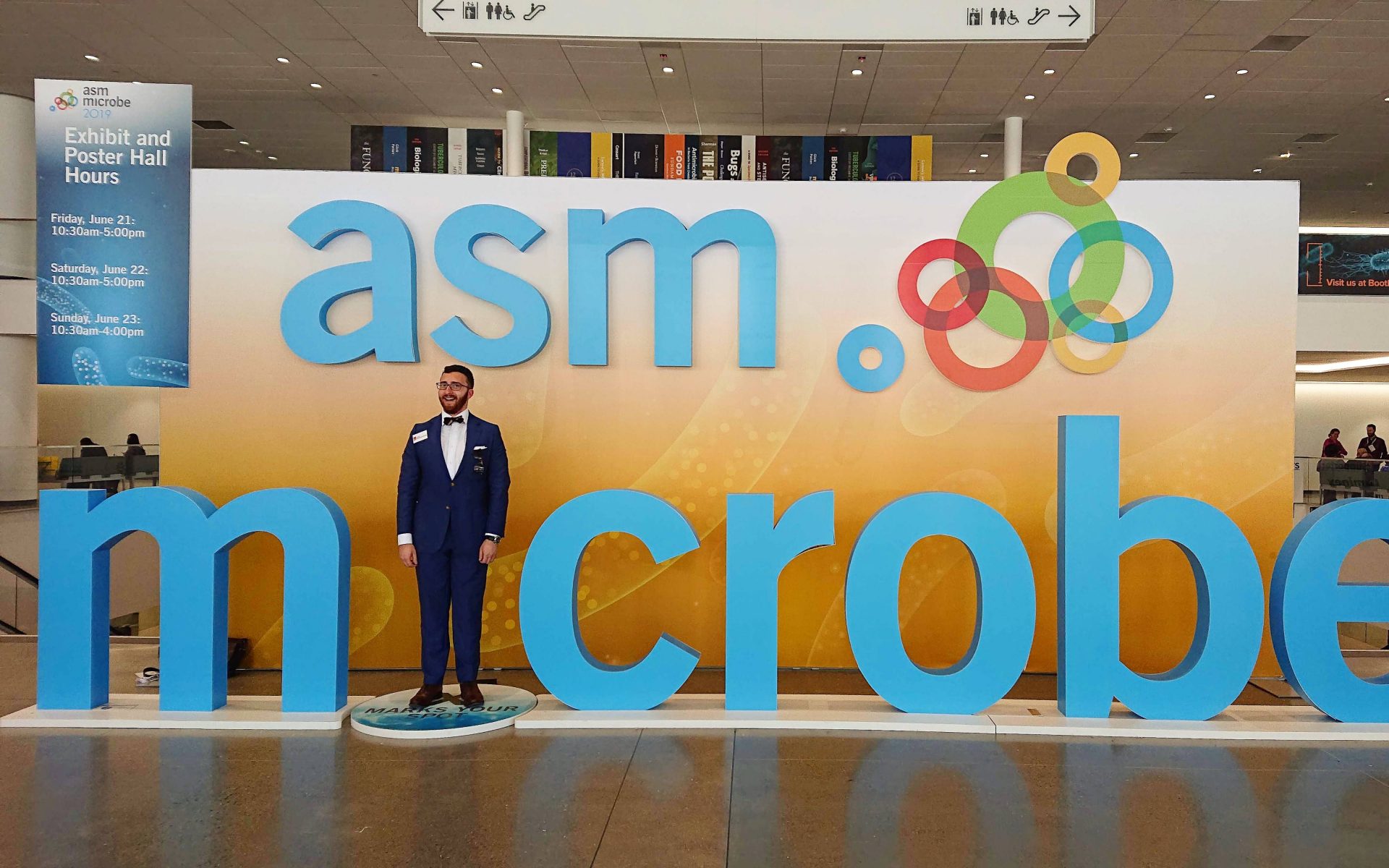 Peter Larson at ASM Microbe 2019
Peter Larson at ASM Microbe 2019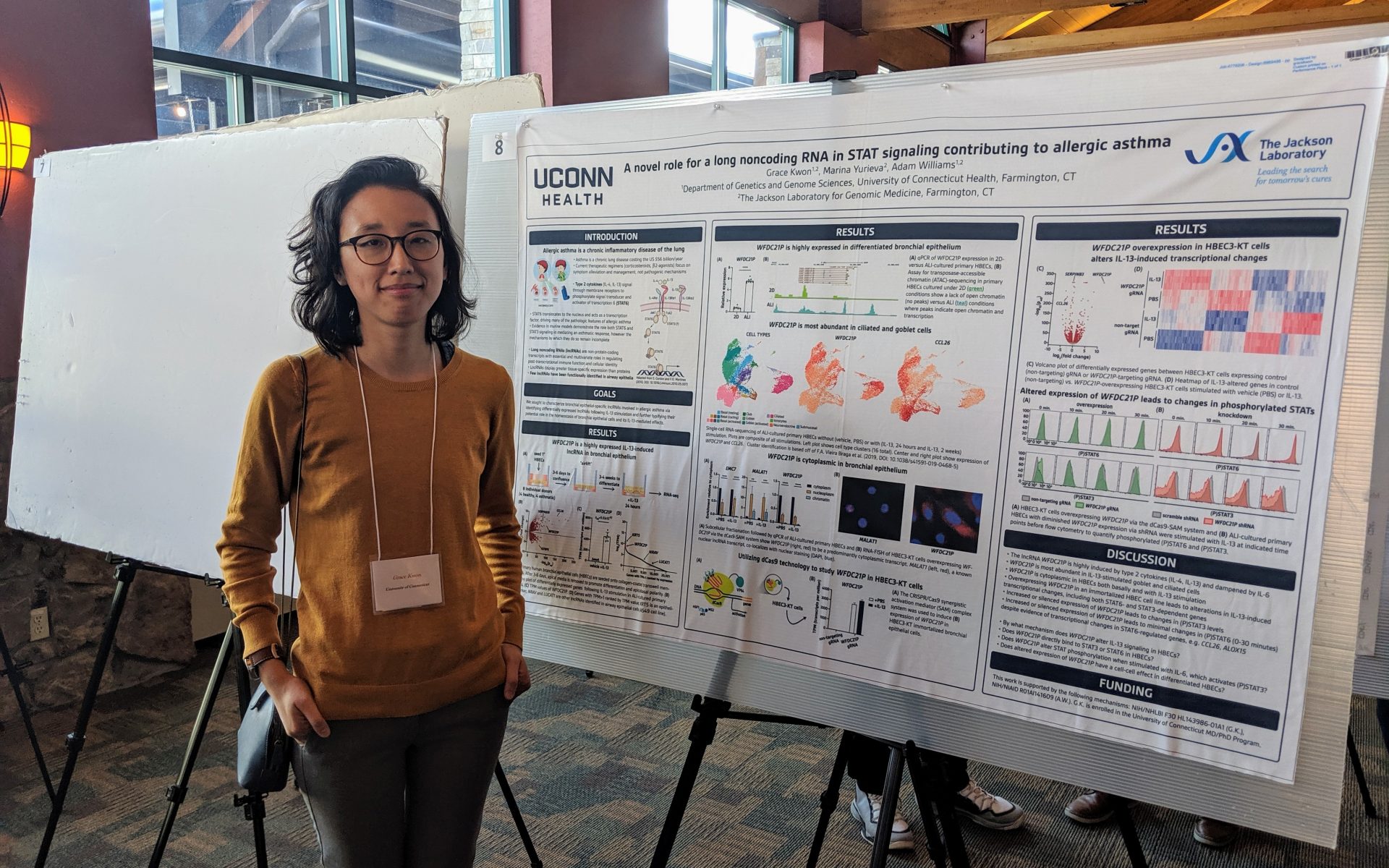 6th year MD/PhD Candidate Grace Kwon Presenting per research on long noncoding RNAs in asthma.
6th year MD/PhD Candidate Grace Kwon Presenting per research on long noncoding RNAs in asthma.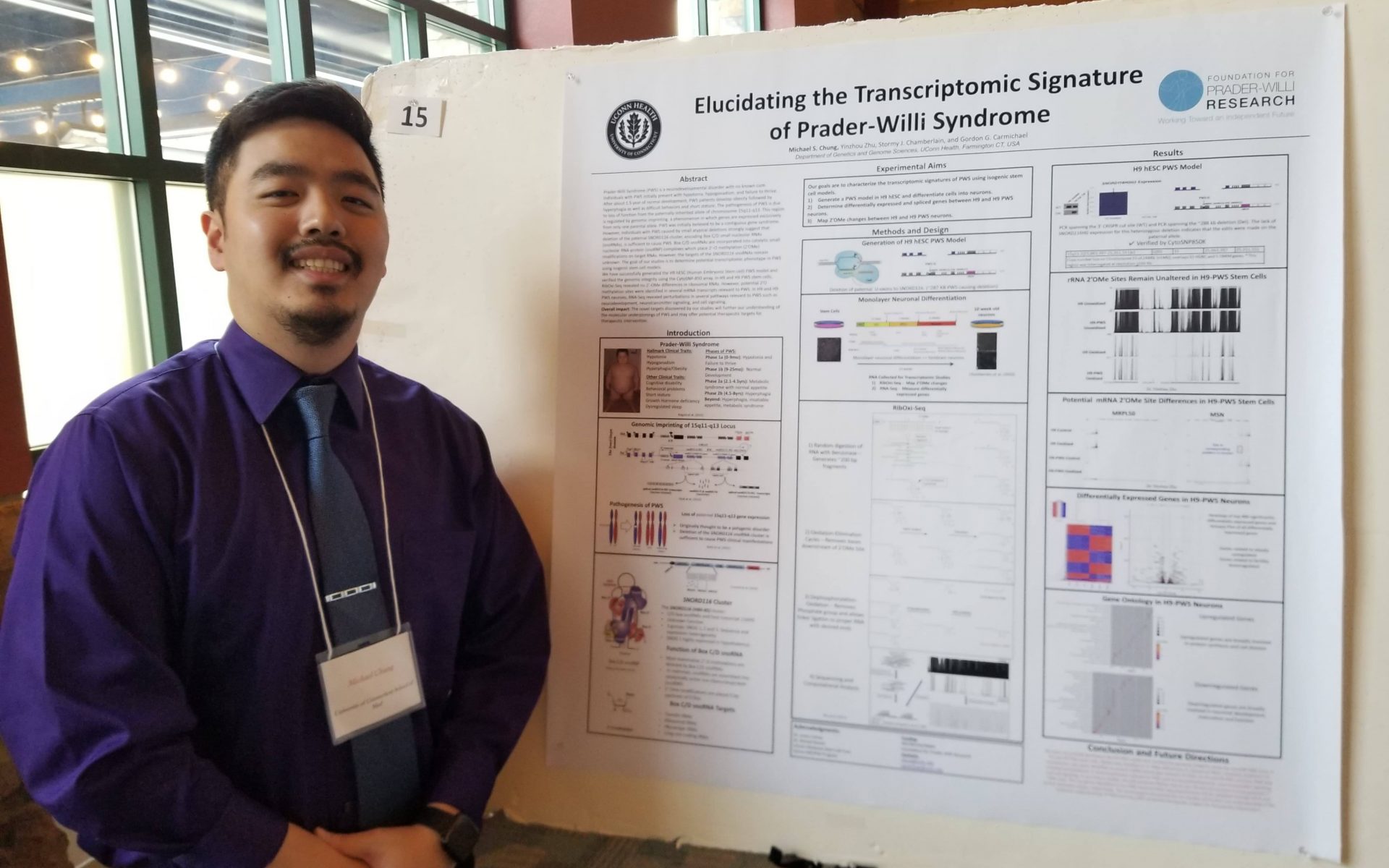 6th year MD/PhD Candidate Michael Chung presenting his research on Prader-Willi Syndrome
6th year MD/PhD Candidate Michael Chung presenting his research on Prader-Willi Syndrome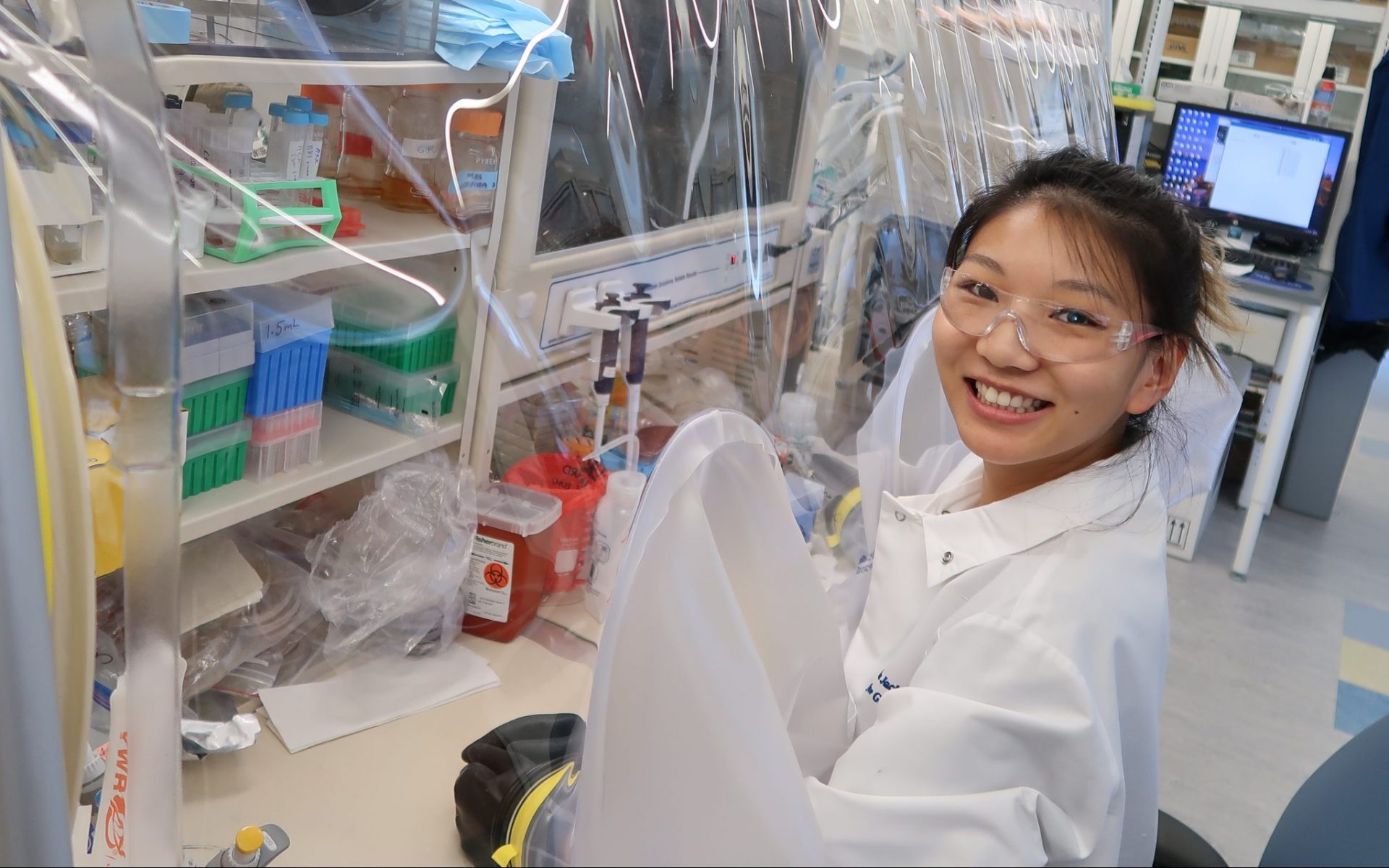 MD/PhD Candidate Jennifer Chung working in an anaerobic chamber.
MD/PhD Candidate Jennifer Chung working in an anaerobic chamber. UConn MD/PhD Students with Dr. Andrew Arnold at the American Society for Clinical Investigation (ASCI) Dinner. Left-right) Maria Xu (GS2), Feria Ladha (GS3), Peter Larson (GS2), Victor Wang (GS2), Dr. Arnold, Katie Discipio (GS3), Grace Kwon (GS3), and Anthony Pettinato (GS2)
UConn MD/PhD Students with Dr. Andrew Arnold at the American Society for Clinical Investigation (ASCI) Dinner. Left-right) Maria Xu (GS2), Feria Ladha (GS3), Peter Larson (GS2), Victor Wang (GS2), Dr. Arnold, Katie Discipio (GS3), Grace Kwon (GS3), and Anthony Pettinato (GS2)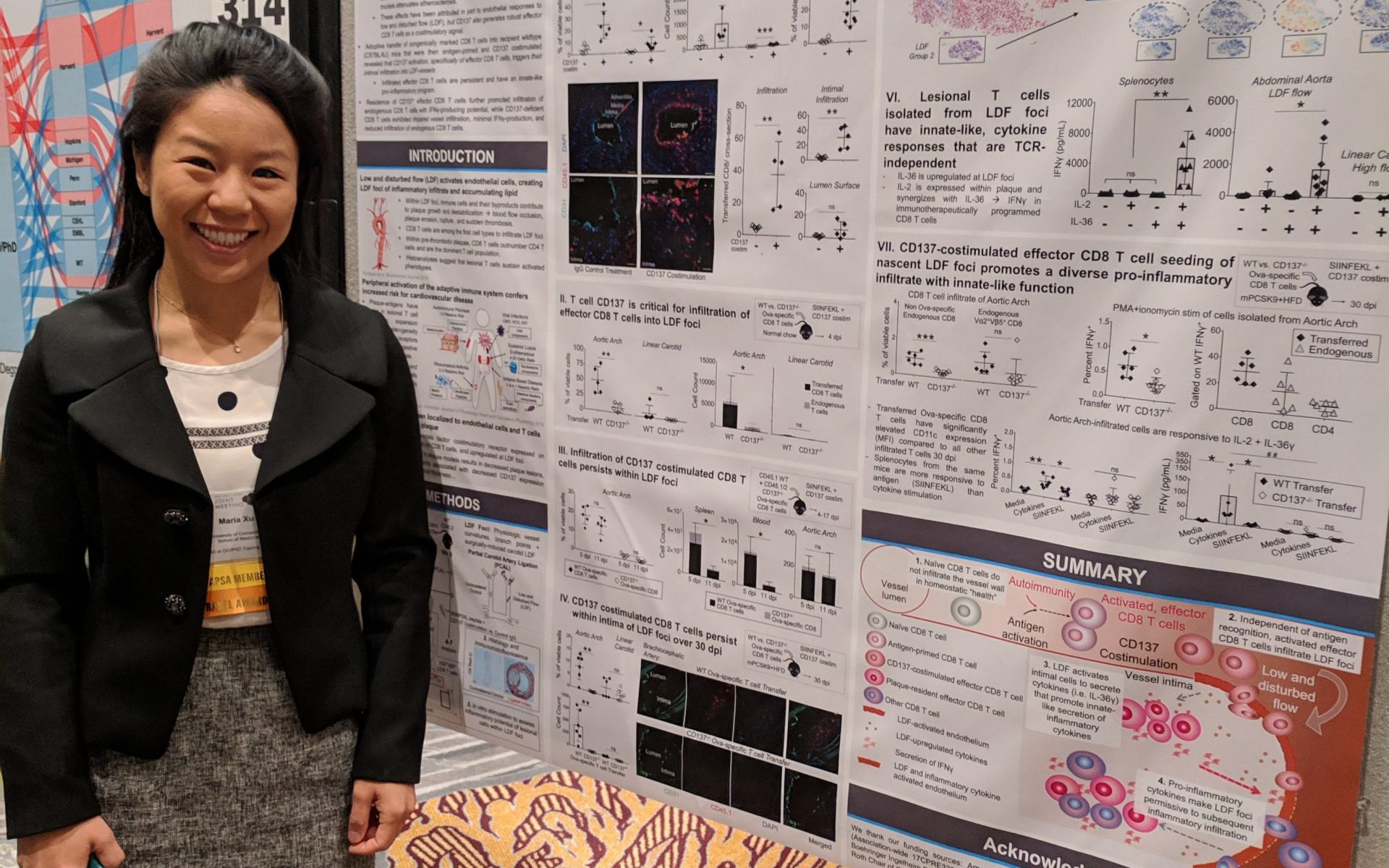 UConn MD/PhD Student Maria Xu presenting her ongoing research in the laboratory of Anthony Vella.
UConn MD/PhD Student Maria Xu presenting her ongoing research in the laboratory of Anthony Vella. Left to Right: MD/PhD Candidates Victor Wang (GS3), Grace Kwon (GS4), and Michael Chung (GS4).
Left to Right: MD/PhD Candidates Victor Wang (GS3), Grace Kwon (GS4), and Michael Chung (GS4).
External Fellowship Awards
Complete tuition waivers and full stipend funding are guaranteed throughout the entire length of our program, along with generous health insurance benefits and waivers for all student fees. For the 2024-2025 academic year, the stipend is $39,100. Many of our students have obtained prestigious fellowship grants, such as the NIH F30 and American Heart Association fellowships. Additionally, UConn and The Jackson Laboratory have several NIH-funded T32 and T90 institutional training programs that offer additional fellowship support for selected applicants during the graduate phase. We provide extensive support for trainee grant applications, including a mock study section with senior faculty members to prepare our students for success. To read about some of our current student fellowships success stories, read our MD-PhD student blog.
Residency Placement
Our students routinely match to physician-scientist training programs (PSTPs) and other competitive residencies in a broad range of specialties all over the country. For more details, check out our MD-PhD Program fact sheet and MD-Ph.D. student blog.
To learn more about the success of our our past and current students, see our MD-Ph.D. student blog, Student Profile page, and MD-PhD Program fact sheet.
Applications
While the Admissions Committee considers a holistic approach, applicants should have substantive research experience, a strong academic record, and prior clinical exposure. Applicants must complete the online AMCAS application, indicate on their application that they are applying to the UConn MD-Ph.D. program, and complete the MD-PhD essay. Learn more about applying to the UConn PhD Program.
Contact Information
| MD-Ph.D. Program Director Kim Dodge-Kafka, Ph.D. MD-Ph.D. Program Co-Director MD-Ph.D. Program Co-Director MD-Ph.D. Executive Committee Chair |
Program Administrators Ms. Tracy Dieli Ms. Diane Starosciak Mailing Address |